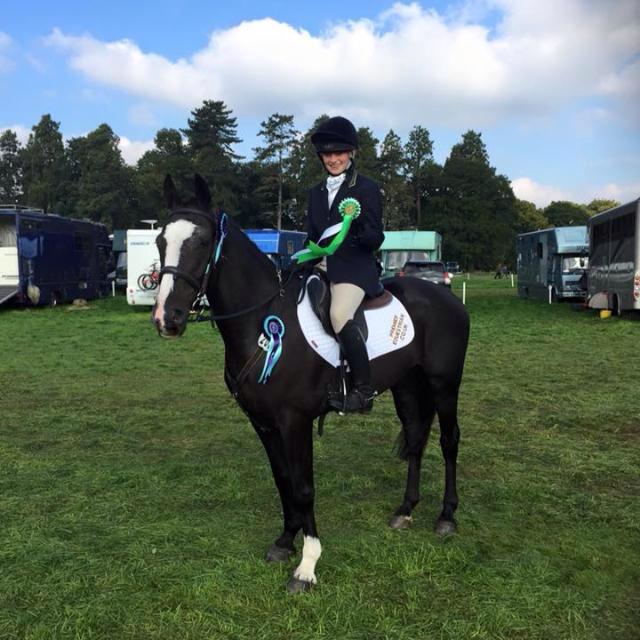Silent Abuse
Share
Silent Abuse
So what is abuse?
How do we define it?
Is it a conscious decision?
Or as is usually the case, a lack of knowledge and understanding!?
I have for years tried to think outside the box when it comes to training. I have a different outlook and approach than other trainers. Many times horses will fit a pattern but, what happens when you don’t know the answers? What happens when that horse is refusing to conform? Where does the blame lie then?
Working for many years with many rejects has not only been extremely rewarding, but also extremely frustrating. Horses are in no way malicious! They have no pre-thought, they don’t make a plan but they live in the moment - it’s all that simple. They may be fresh, which can sometimes makes them behave how we might not want them too, however again, who is to blame for this? If a horse is over fed, cooped up in a stable (either because of injury, or as recently weather related incarceration) then really why would we expect them not to be more reactive than they would be when they have turnout and a normal mix of situations? So what we need to think about is can we control our horse’s behaviour, without first ensuring that they are in the right physical state to be trained?
I have come across many horses which have unpopular breeding. We have had two such horses, both bred by the same stallion who, by the way, has a beautiful temperament himself. The first brother was a 14.2hh pony. He was the most unbelievably talented pony I have ever seen, but he was a challenge and we ended up buying him for a small price. My daughter was 14 at the time and he was a serious rearer - but this didn’t put either of us off. He had a long hind leg with more power than he knew what to do with. Whenever he felt unbalanced by that power he would rear - that was his reset button, if you like. As a 6 year old he was placed in an intermediate novice and then followed this up by finishing 8th in the pony 2* at Weston park. After this, they were asked to be part of the pony squad for the following season. Unfortunately, a ruptured stomach while on his holiday deleted those dreams for us all. However he taught us that understanding what he needed from us was the key to the success in training him.
So often these talented horses and ponies are written off. They are not naughty but something physical has happened or is happening to make them behave that way. I mentioned the breeding because this brings me to brother number 2.
Now, some of you will know Eric the Red. He’s pretty unimpressive to look at. He measures 15.2hh maximum and he was bred by a family member, so we have always known him. Eric has always been difficult. He wouldn’t load as a young horse, he was aggressive and nothing had ever happened to make him like this. He regularly tried to kill lambs/sheep and generally had a bad attitude to life. I knew he had had no physical problems; he had not had a bad start. In fact every horse we have had off this person since, had been extremely easy and straight forward so upbringing wasn’t an option for blame. But similar to his brother, Eric was small with an enormous amount of power in a little body. This made him nervous, which in turn made him aggressive, difficult and unpredictable. Normal methods just would not do and we had to think outside the box to be able to get anything out of him. He is still tricky but, proving his ability, he has completed clear his first advanced and 4*-S.
The reason why this blog is called silent abuse is because so many of us are lost when it comes to our horses. We follow our professionals, sometimes blindly, and without success. We all need to understand the reasons why our horses are behaving as they do and take responsibility when that involves us as riders. The balance (or lack of) that Eric was feeling, probably wasn’t helped by his rider, on occasions. This was because Kate was and is always trying to make his life easier. She has worked extremely hard on herself and has used the seat aid in the last couple of years and this has helped unbelievably! I think what helps him most is that whenever he’s feeling unbalanced and insecure she can recognise this, and in her riding she can support him, rather than to reprimand him, which would traditionally be the way to go.
Silent abuse comes in many different forms; badly fitting saddle, badly shod/ poor foot balance, bitting and bridle pressures, dental problems - the list is endless. Additionally, we as riders also need to be aware of the pressures we can put on a horse, by not sitting straight or by being unbalanced, again the list is endless.
Try to always work out what’s going wrong and why that might be. Finding the next gadget or bit to strap on to your horse might not be the only answer; your horse might just need you to get out of the way and, as the rider, allow them to move unhindered by you, the best that you can.

